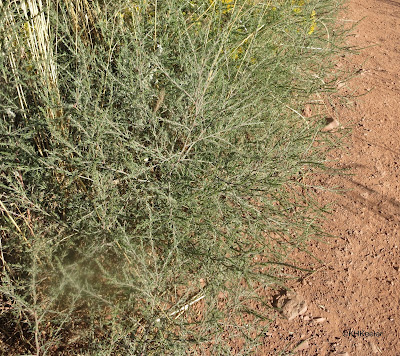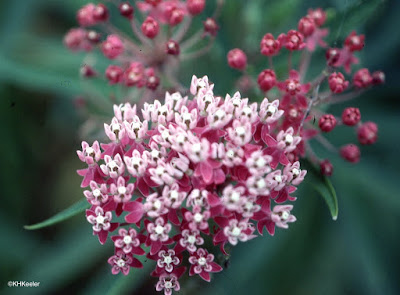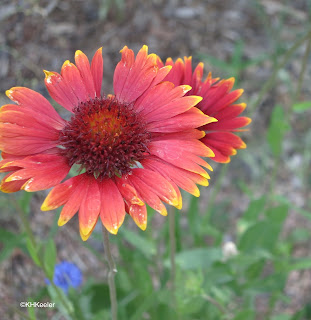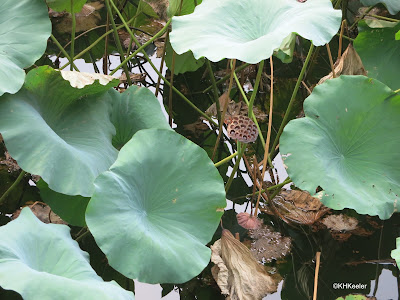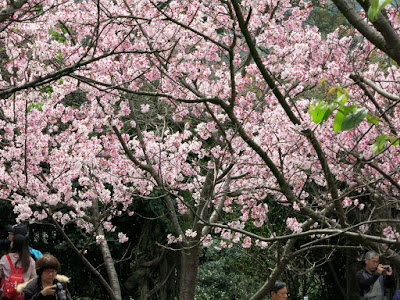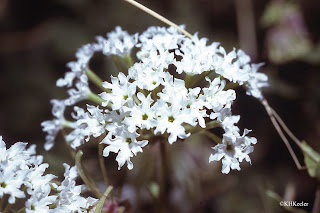"Plant milkweeds!" they say. But which ones?
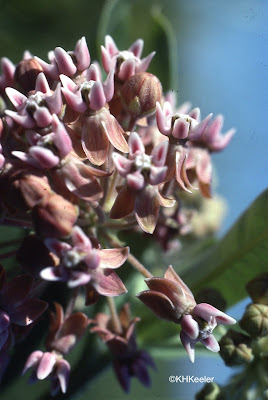 |
| common milkweed, Asclepias syriaca |
The number of monarch butterflies (
Danaus plexipus) seen in the eastern United States has declined dramatically over the last couple decades. Monarch experts, e.g. Drs. Lincoln Brower and Orley Taylor, make a strong case that the decline has been caused by several factors: First, 1), changes in agriculture in the U.S. midwest that have reduced the number of milkweeds for monarch butterflies to feed upon. In particular, use of herbicide-resistant crops eliminated the common milkweed,
Asclepias syriaca (dogbane family, Apocynaceae) which had been growing as a weed in the corn and soybeans. Simultaneously, high prices for corn and soybeans, now used for biofuels (ethanol) as well as human and animal food, favored expansion of weed-free cropland into areas that previously supported wild plants including milkweeds. Another cause of monarch butterfly decline is, 2), loss of forests in their overwintering grounds in Mexico, due to illegal logging and poor management. In addition, 3), periods of unfavorable weather reduced growth of monarchs and allowed their natural enemies, from birds and ants to fungal diseases, to find and kill them. (See the Taylor lecture with all the data;
link). To counter the decline in monarch butterflies, many changes may be required, but much can be done by having more milkweeds available for the butterflies. Monarch butterfly caterpillars eat milkweeds and accept no substitutes. Consequently, concerned experts and citizens urge planting milkweeds so that there is ample food for monarch caterpillars. Adult butterflies get norishment for the nectar from flowers of many plant species so adult food is rarely an issue.
 |
| wild milkweeds in Colorado, showy milkweed |
If a major part of the problem is reduction in milkweed numbers, then planting milkweeds is a very effective response. To aid that, a variety of organizations are advising people all across North America to plant milkweeds, providing links and advice, and in some cases giving away milkweed seeds. (
Monarch Watch,
Save our Monarchs,
Xerces Society )
However, not everyone should just write away for free seeds and toss them into their yard. My concerns are from the point of view of growing well-adapted native plants. If the plant dies, you've wasted your time and energy and any monarch caterpillars relying on it die too. Conversely, introducing troublesome new weeds would be an undesirable outcome of this campaign. Plant the right milkweed for your area.




